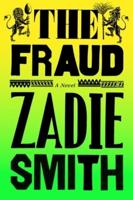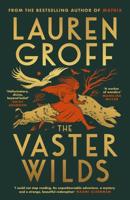Publisher's Synopsis
"Pink and White Tyranny" is a comedy of manners on the institution of marriage in the nineteenth century. Lillie Ellis, a professional belle, has been spoiled, petted, and flattered since the day she was born. When she tricks the adoring and upright John Seymour into marriage, it is unclear who is the victim and who is the victimizer."Who is that beautiful creature?" said John Seymour, as a light, sylph-like form tripped up the steps of the veranda of the hotel where he was lounging away his summer vacation."That! Why, don't you know, man? That is the celebrated, the divine Lillie Ellis, the most adroit 'fisher of men' that has been seen in our days.""By George, but she's pretty, though!" said John, following with enchanted eyes the distant motions of the sylphide.The vision that he saw was of a delicate little fairy form; a complexion of pearly white, with a cheek of the hue of a pink shell; a fair, sweet, infantine face surrounded by a fleecy radiance of soft golden hair. The vision appeared to float in some white gauzy robes; and, when she spoke or smiled, what an innocent, fresh, untouched, unspoiled look there was upon the face! John gazed, and thought of all sorts of poetical similes: of a "daisy just wet with morning dew;" of a "violet by a mossy stone;" in short, of all the things that poets have made and provided for the use of young gentlemen in the way of falling in love.This John Seymour was about as good and honest a man as there is going in this world of ours. He was a generous, just, manly, religious young fellow. He was heir to a large, solid property; he was a well-read lawyer, established in a flourishing business; he was a man that all the world spoke well of, and had cause to speak well of. The only duty to society which John had left as yet unperformed was that of matrimony. Three and thirty years had passed; and, with every advantage for supporting a wife, with a charming home all ready for a mistress, John, as yet, had not proposed to be the defender and provider for any of the more helpless portion of creation. The cause of this was, in the first place, that John was very happy in the society of a sister, a little older than himself, who managed his house admirably, and was a charming companion to his leisure hours; and, in the second place, that he had a secret, bashful self-depreciation in regard to his power of pleasing women, which made him ill at ease in their society. Not that he did not mean to marry. He certainly did. But the fair being that he was to marry was a distant ideal, a certain undefined and cloudlike creature; and, up to this time, he had been waiting to meet her, without taking any definite steps towards that end. To say the truth, John Seymour, like many other outwardly solid, sober-minded, respectable citizens, had deep within himself a little private bit of romance. He could not utter it, he never talked it; he would have blushed and stammered and stuttered wofully, and made a very poor figure, in trying to tell any one about it; but nevertheless it was there, a secluded chamber of imagery, and the future Mrs. John Seymour formed its principal ornament.The wife that John had imaged, his dream-wife, was not at all like his sister; though he loved his sister heartily, and thought her one of the best and noblest women that could possibly be.










